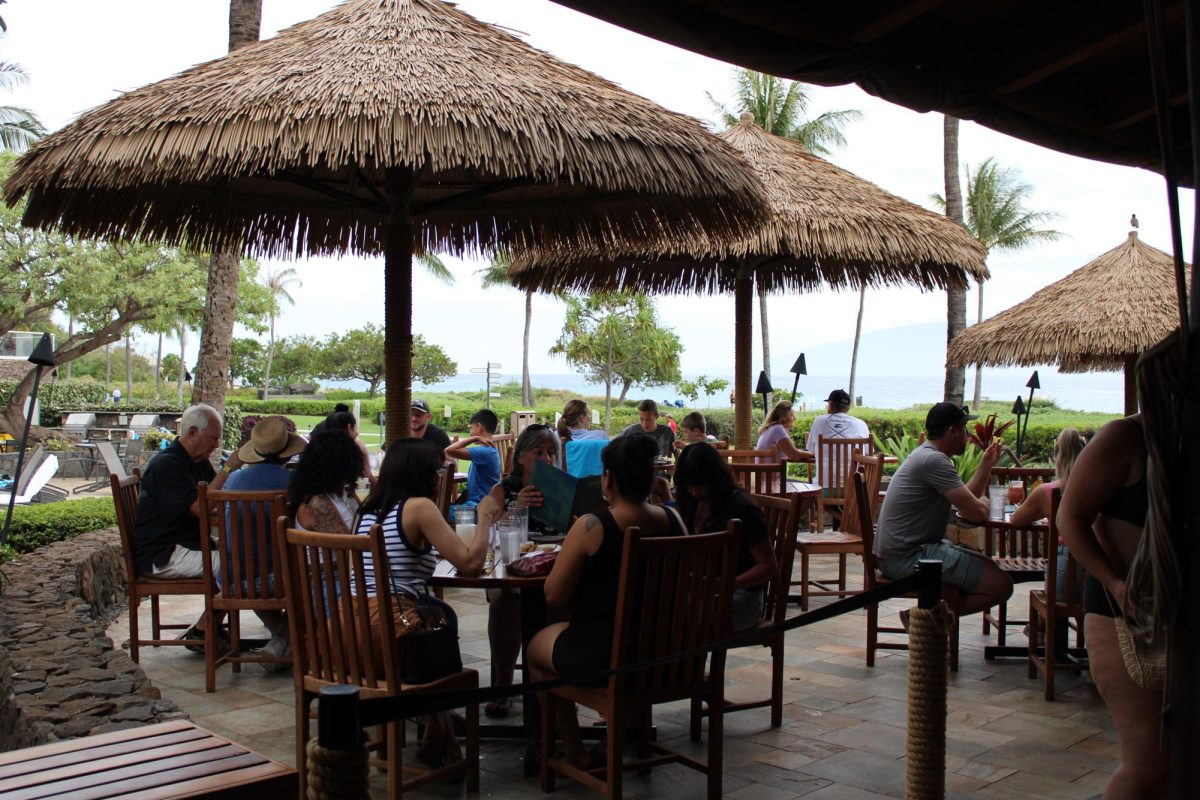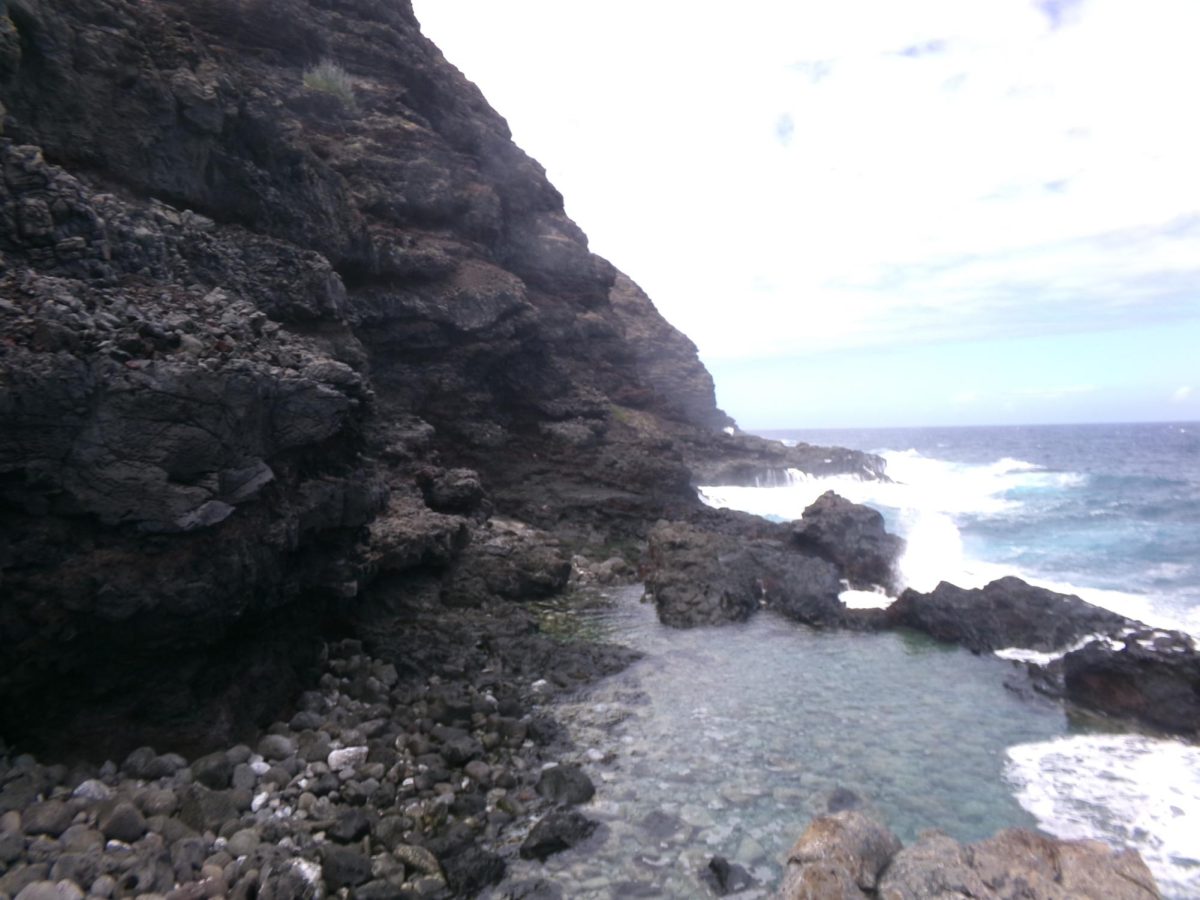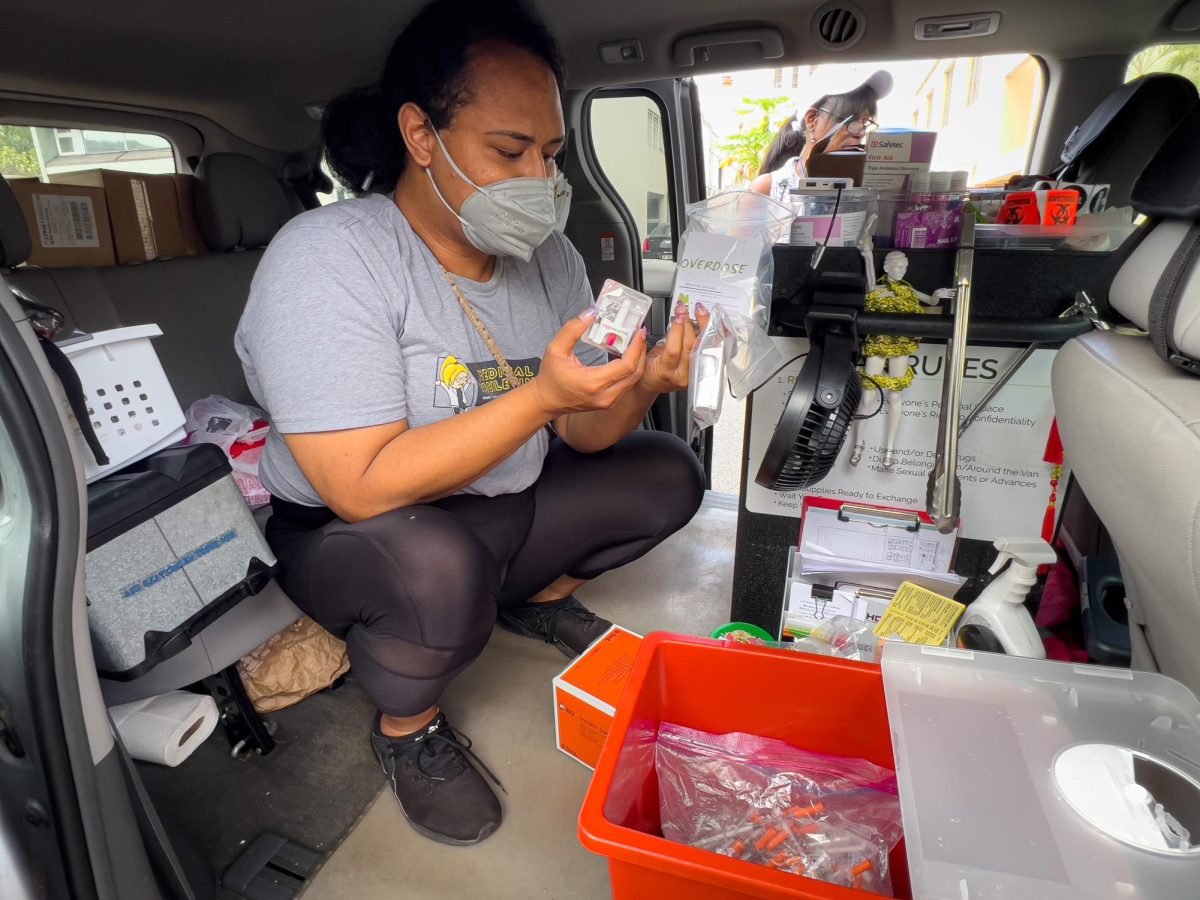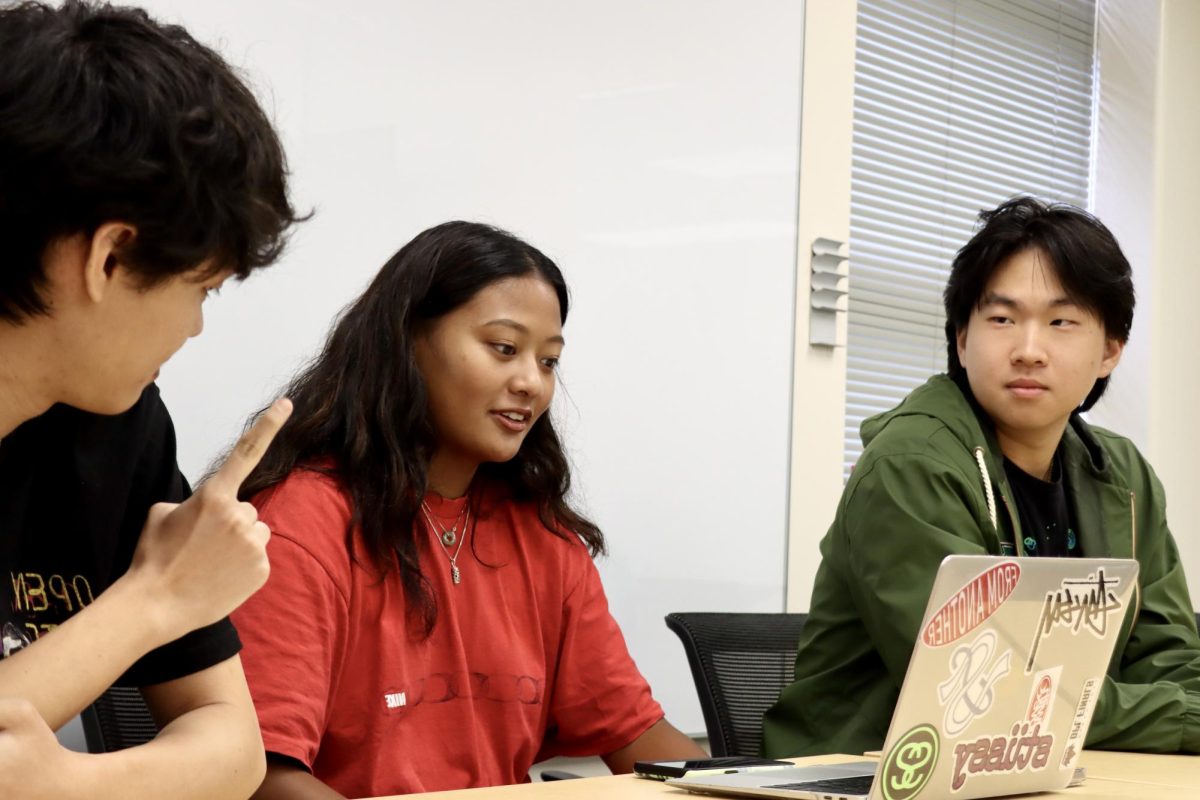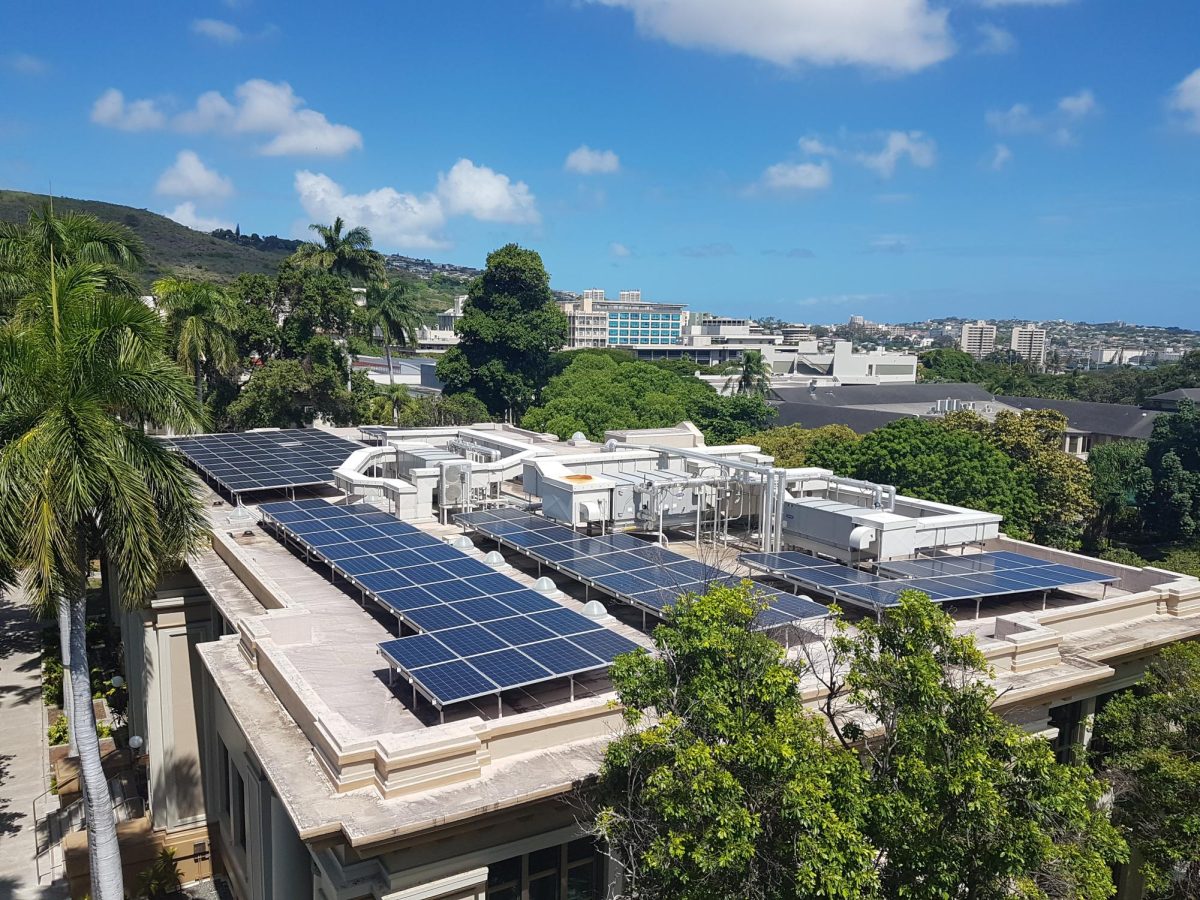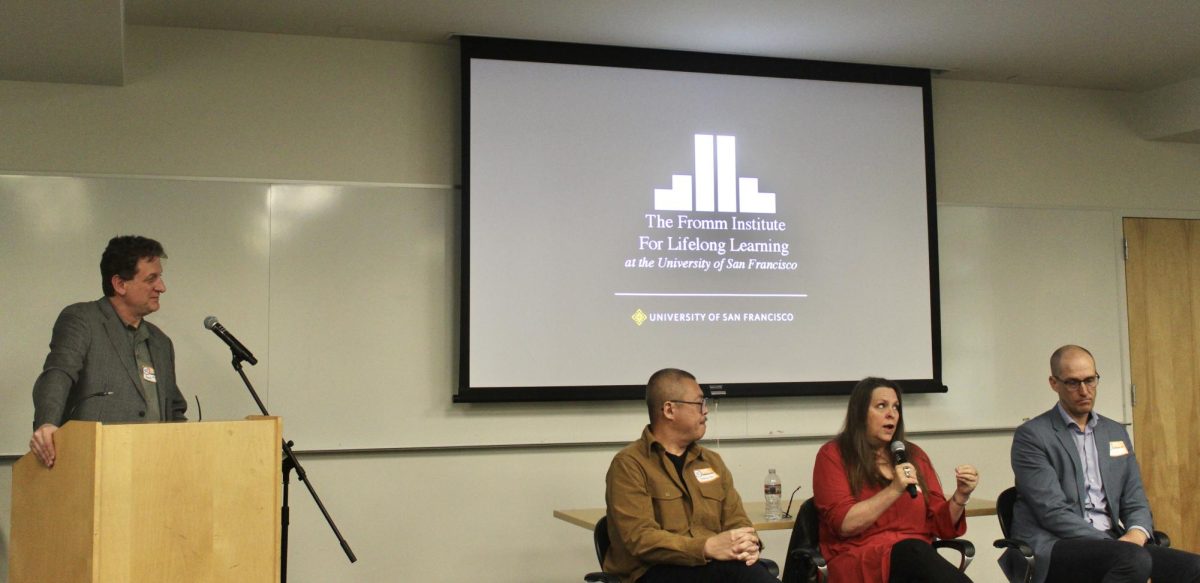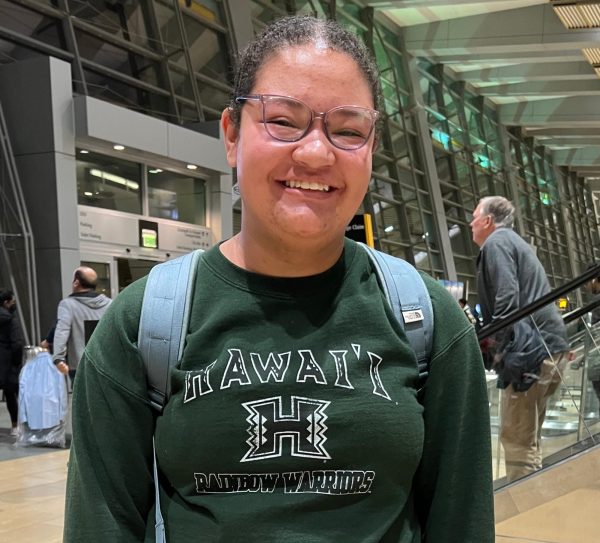LAHAINA – The Vasquez family faced another dilemma in addition to figuring out where they would sleep each night since their home was destroyed.
Josie was scheduled to leave to start her freshman year at Occidental College in Los Angeles one week after last year’s Aug. 8 wildfires that devastated Lāhainā town.
Her father, Jojo Vasquez, chef, and owner of FOND, in Nāpili Plaza, owned a condo that was lost to the fire that destroyed or damaged thousands of structures and killed around 100 people.
The semifinalist for the 2022 James Beard Foundation “Best Chef: Northwest and Pacific” and his family had to resort to couch surfing.
Vasquez’s business survived the COVID-19 pandemic in 2020, with him reinventing his menu and adjusting protocols.
Now, just when Vasquez thought the never-ending challenges had been met, the wildfires came, creating new ones. And they all were not just related to the business.
What about Josie and Occidental?
“I was very happy to send her off, this is her first year,” the father said. “We sent her off empty-handed but it was the week after the fire.”
Many asked Vasquez if he would hold his daughter back from going to college. Although it was difficult to see her go, he saw no point in making her stay behind.
“It is one more human I got to take care of,” Vasquez said. “She worked her butt off to get to this point.”
Ten months later, Josie is back home after her freshman year of college. But devastation still haunts the streets of her once-bustling hometown. Charred structures and blackened ground blanket neighborhoods. From Honoapiliani Highway, motorists can see hand-drawn pictures by school kids lining the walls blocking the most affected areas, in tribute to those who died, and those who survived and live by the motto “Lahaina Strong.”
News outlets from far and wide come to Maui to cover the aftermath of fires. Many victims interviewed emotionally recalled their narrow escape from the fast-moving fire, and the loss of loved ones who didn’t make it.
Some asked for help finding unaccounted for relatives. Many asked for supplies like clothes and food or a place to stay.
Visitor arrivals fell 15.2 percent from 2022 to 2023, according to the Hawaii Tourism Authority.
Restaurants, like all Maui businesses, felt the fire’s burden. Food needed to be kept fresh and rent had to be paid. Mostly, especially since restaurant staff are often like family, employees had to be taken care of: financially and emotionally. As it was during the pandemic, it had to be done with little or no money coming in from business.
Ten months after the fire, restaurants like FOND are still reeling and continue to search for ways to recover best.
After getting Josie off to school, Vasquez returned to a mountain of work.
Life did not stop for restaurants and their workers. Their livelihoods and, in many cases, everything they worked so hard for was gone. Those, like Vasquez, used to leading and helping others, found themselves needing assistance.
“Everything was taken away. And I work so hard that to even imagine someone like me, that has to put out my hand and ask for help,” said Vasquez, during an April noon-time interview at FOND, while a few local residents watched a golf tournament on the bar TV and a couple of small groups came in for lunch.
Later that day, a few miles up the west Maui coast and on the beach, Nick Ware, the general manager of TS Restaurants and Duke’s Beach House Maui talked about how lucky he was that his home remained standing while others nearby burned.
While resort guests enjoyed the beach behind him, Ware talked about the people of Maui helping each other and his pride in how his employees and management above him stepped up last August, and beyond, too.
The playbook was similar when it came to the Maui wildfires as it was during COVID-19. Only this time it hit closer to home, Ware said. He credited the Honua Kai Resort and Westin, the property which Duke’s is on, for their support.
“The communication from the resort and their willingness to allow us to operate outside of our hours of operations made things a lot easier,” Ware said.
Duke’s went from a popular tourist restaurant to a gathering place for locals who needed emotional and other support from fellow Maui residents after the fires.
The Red Cross used the Westin and Honua Kai Resort property as temporary housing for Maui residents. Duke’s ultimately ended up with a Red Cross contract for food service, which was a huge help in keeping staff employed.
With 724 employees and communication down completely, their home office in California contacted all employees to make sure they were safe. TS Restaurants also guaranteed its employees pay for six weeks and additional relief pay.
“We were able to bring back anyone on our staff that wanted to come back to work,” Ware said.
The community came together and set up supply chains for those who needed it most, he added.
He recalled the propane, food, and ice, and the caravans of Toyotas packed with supplies that came from all parts of Maui.
With the help of sister restaurant Leilani’s, general manager Jason Donez ordered refrigerator trucks to store food and propane grills to prepare food for people stranded.
“It just goes to show the type of community we are in and the type of restaurant and company I get to work for,” Ware said.
Duke’s opened its doors for business again on Sept. 5. There were no tourists, but the restaurant became a gathering place for locals beginning to recover from the fire.
Tourists have returned, but it is still much less compared to the number in early 2023, when the visitor industry had recovered from the pandemic.
“It is not lost on anybody how lucky we are to be here and how lucky we were to be able to make a little money with the Red Cross by doing the right thing,” Ware said.
Ware moved to Hawaii with three Northeastern University college roommates in the early 2000s. Two days after arriving in Hawaii from Boston, he started working at Duke’s. Now he is a veteran of two major crises, and how Mauians respond to them.
“It took me years to really sort of see the value in living that way as opposed to that hard-nosed East Coast mentality and brashness,” said Ware.
Grocery stores also took a hit from the fires. Jon Yasutake and Russell Romo are managers at Island Grocery Depot.
Their Lāhainā location sustained some damage however it was not nearly as bad as other businesses, Yasutake said.
“In the wake of the Lahaina fires, our store stood as a symbol of hope for us amidst the chaos,” he said.
Although the structure survived, the fires impacted business drastically. The store continues to rebound 10 months later.
“The unwavering support of our patrons and the dedication of our team have continued to remind us that we will get there together,” Yasutake said.
Around half of their 100 workers lost their homes.
The family-owned company had the unique challenge of operating two stores amid the aftermath of the fire. Some of their team moved to the Kahului location.
“Despite the hardship and challenges, our team rallied together with unwavering solidarity,” Yasutake said. “We found strength in our unity and shared a common goal of reopening our store for our community.”
Island Grocery Depot coordinated with long-time partners to distribute supplies where they were needed most. They collaborated with Feed My Sheep and the Maui Food Bank to keep people fed.
“We cannot say enough wonderful things about those partners and many other organizations who put boots on the ground here,” Yasutake said.
As Maui recovers from the fire, hope, and justice for the survivors can bring back the Lahaina locals and visitors know and love.
Ten months after the worst natural disaster in state history, those affected the most, the people who live and work in the Lahaina area, make the best of things. They know Lahaina will be changed forever, and not every business will survive or reopen. But the food chain, including the restaurant industry, shows signs of bouncing back.


